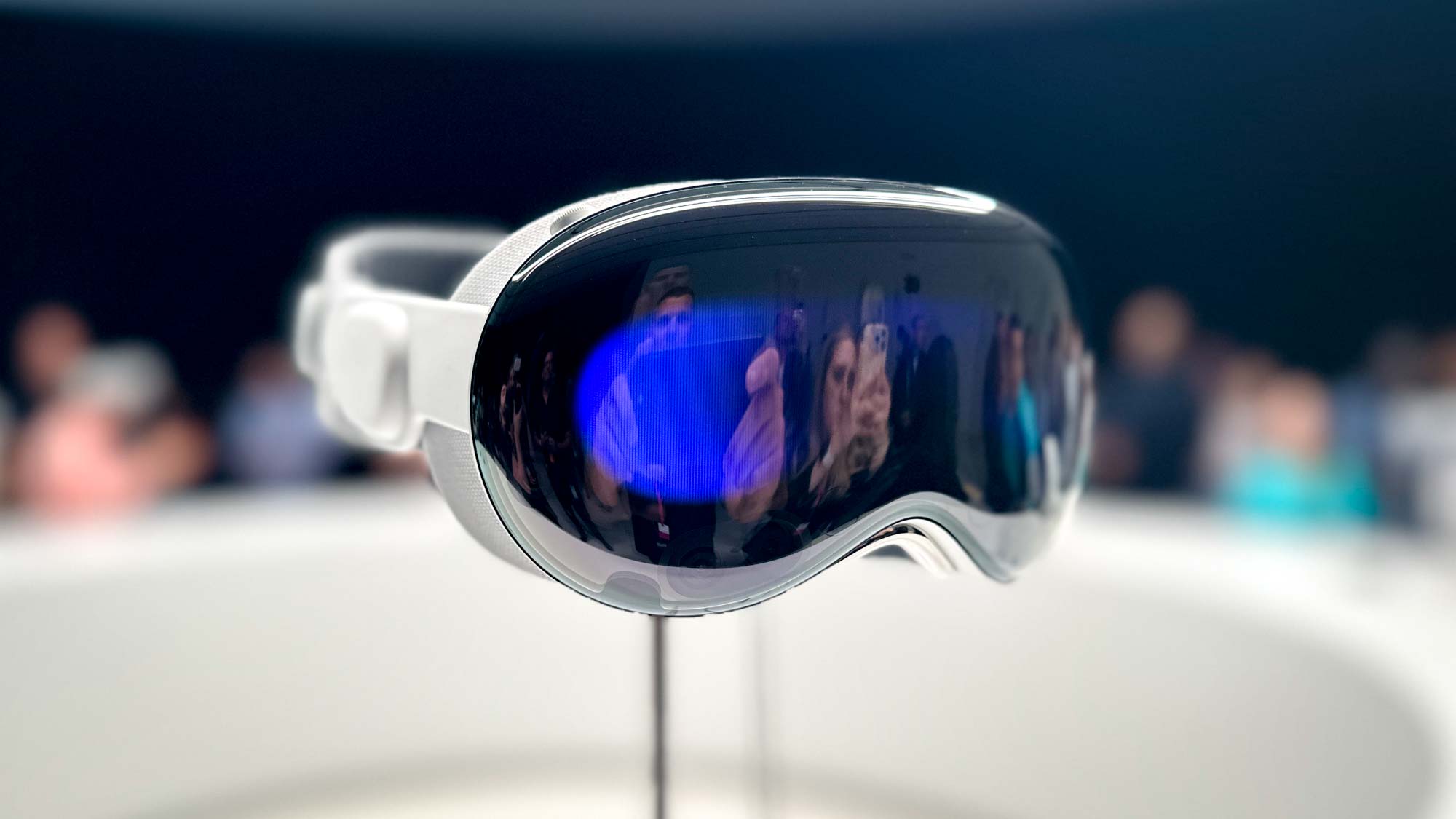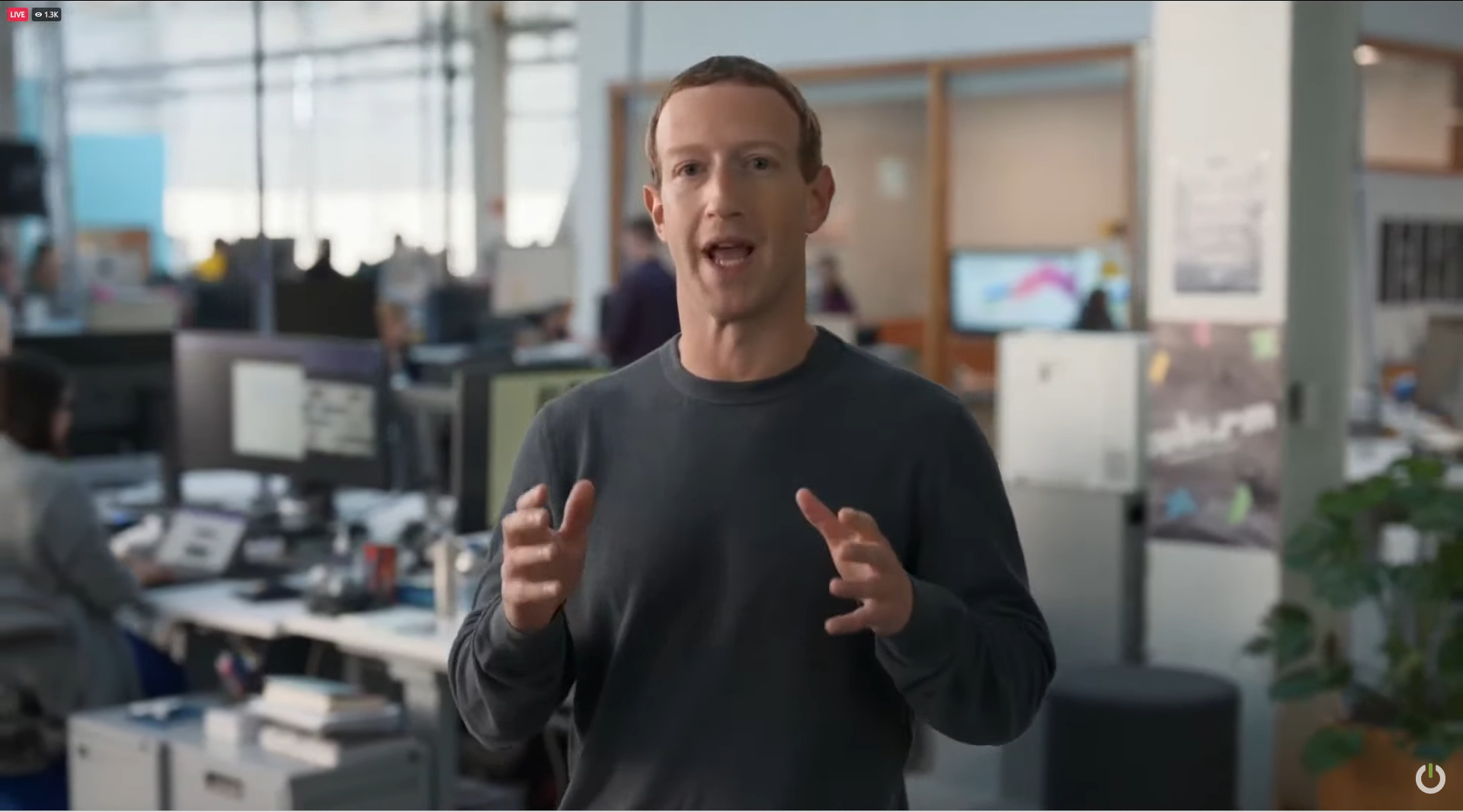
Mark Zuckerberg came out swinging in response to the Apple Vision Pro this week, saying Cupertino had a “philosophical difference” to Meta when it comes to mixed and virtual reality. He was also quick to point out the $3,500 Vision Pro was seven times more expensive than the upcoming $499 Quest 3. Which, co-incidentally, he announced just days before Apple’s WWDC reveal.
But Zuckerbeg went further, suggesting to Meta employees that Apple’s idea of the future of computing was an anti-social one. “Every demo that they showed was a person sitting on a couch by themself[sic],” he told the all-hands meeting, according to The Verge.
“I mean, that could be the vision of the future of computing, but like, it’s not the one that I want.”
Of course Zuckerberg is going to talk down Apple’s latest creation. His company has spent literally billions of dollars on the bet that (a vast amount) of the future of human interaction will happen from within a headset.
Thing is, if I was the Facebook boss, I’d be pretty nervous about what Apple has just unveiled.
The reasoning is very simple: Apple is very good at selling products to customers. That’s partly down to marketing but it’s also because the brand has built up such a level of loyalty among its fanbase. Throw in the fact that Apple has a rock-solid ecosystem lock-in and, mark my words, there are plenty of people who will buy the Vision Pro. Despite the huge asking price.
Facebook, on the other hand, doesn’t have the best track record when it comes to inspiring loyalty. Even a company name change doesn’t quite eradicate the bad taste left by the likes of Cambridge Analytica scandal. Facebook is a data and advertising company and Apple is a devices company; that's why I fear for Zuckerberg's future. What will he do when a cheaper Vision Pro emerges?

But, even taking into account the hardware, Apple’s play is that Vision Pro will become a fully-featured computing device that could bring about the same kind of revolution the iPhone did. Meta meanwhile, seems to be focused primarily on gaming and social networking. That’s all well and good, but the purchase decision will be akin to choosing between one of the best handheld gaming consoles or one of the best gaming laptops. The latter is vastly more expensive, but vastly more capable. You don’t just have to use it to game on.
It’ll be easier for Vision Pro to scale down than it will be for the Meta Quest to scale up. Even Zuckerberg had to acquiesce the Vision Pro had some very impressive tech packed inside it, noting Apple went for “a higher resolution display,” but he called it a “design trade-off” that “might make sense for the cases that they’re going for.”
It’ll be easier for Vision Quest to scale down than it will be for the Meta Quest to scale up.
It’s true that Meta has a head-start in the headset arms race, and offers the souped-up Quest Pro as a more enterprise-focused alternative. But when my colleague Tony tried it, he wasn't sure if it would translate to mass adoption. I'd argue Apple has the edge here due to its ecosystem and developer community. And if the Vision Pro can get a foot in the door here, I think future customers may turn away from the next generation of the Meta Quest Pro device.
Furthermore, I don’t foresee consumers picking up multiple headsets the way they do phones, laptops, game consoles or anything else. After all, you can play the Nintendo Switch and check your iPhone 14 while watching content on your LG G2 OLED TV. You can’t dip into a game on your Meta Quest 3 while you’re strapped into the Vision Pro.
If I were standing in Zuckerberg’s expensive shoes right now, my feet would doubtless be comfortable but my mind would be troubled. Consumers have not been kind to the VR landscape (HoloLens and Google Glass, anyone?) and Apple has a history of disrupting the market sectors it chooses to enter into.
We can’t write Meta off, as Zuckerberg notes, Meta has sold “tens of millions of Quests”. But, as the finance world is fond of saying, past performance is no guarantee of future success. If you’re interested, below is Zuckerberg’s full statement on Vision Pro.
Mark Zuckerberg's full statement on Apple Vision Pro

Apple finally announced their headset, so I want to talk about that for a second. I was really curious to see what they were gonna ship. And obviously I haven’t seen it yet, so I’ll learn more as we get to play with it and see what happens and how people use it.
From what I’ve seen initially, I’d say the good news is that there’s no kind of magical solutions that they have to any of the constraints on laws of physics that our teams haven’t already explored and thought of. They went with a higher resolution display, and between that and all the technology they put in there to power it, it costs seven times more and now requires so much energy that now you need a battery and a wire attached to it to use it. They made that design trade-off and it might make sense for the cases that they’re going for.
But look, I think that their announcement really showcases the difference in the values and the vision that our companies bring to this in a way that I think is really important. We innovate to make sure that our products are as accessible and affordable to everyone as possible, and that is a core part of what we do. And we have sold tens of millions of Quests.
More importantly, our vision for the metaverse and presence is fundamentally social. It’s about people interacting in new ways and feeling closer in new ways. Our device is also about being active and doing things. By contrast, every demo that they showed was a person sitting on a couch by themself. I mean, that could be the vision of the future of computing, but like, it’s not the one that I want. There’s a real philosophical difference in terms of how we’re approaching this. And seeing what they put out there and how they’re going to compete just made me even more excited and in a lot of ways optimistic that what we’re doing matters and is going to succeed. But it’s going to be a fun journey.
And if you want to know in more detail about how Apple's offering stacks up to what Meta has planned, read our Apple Vision Pro vs Meta Quest 3 face-off right here.







